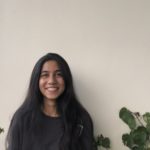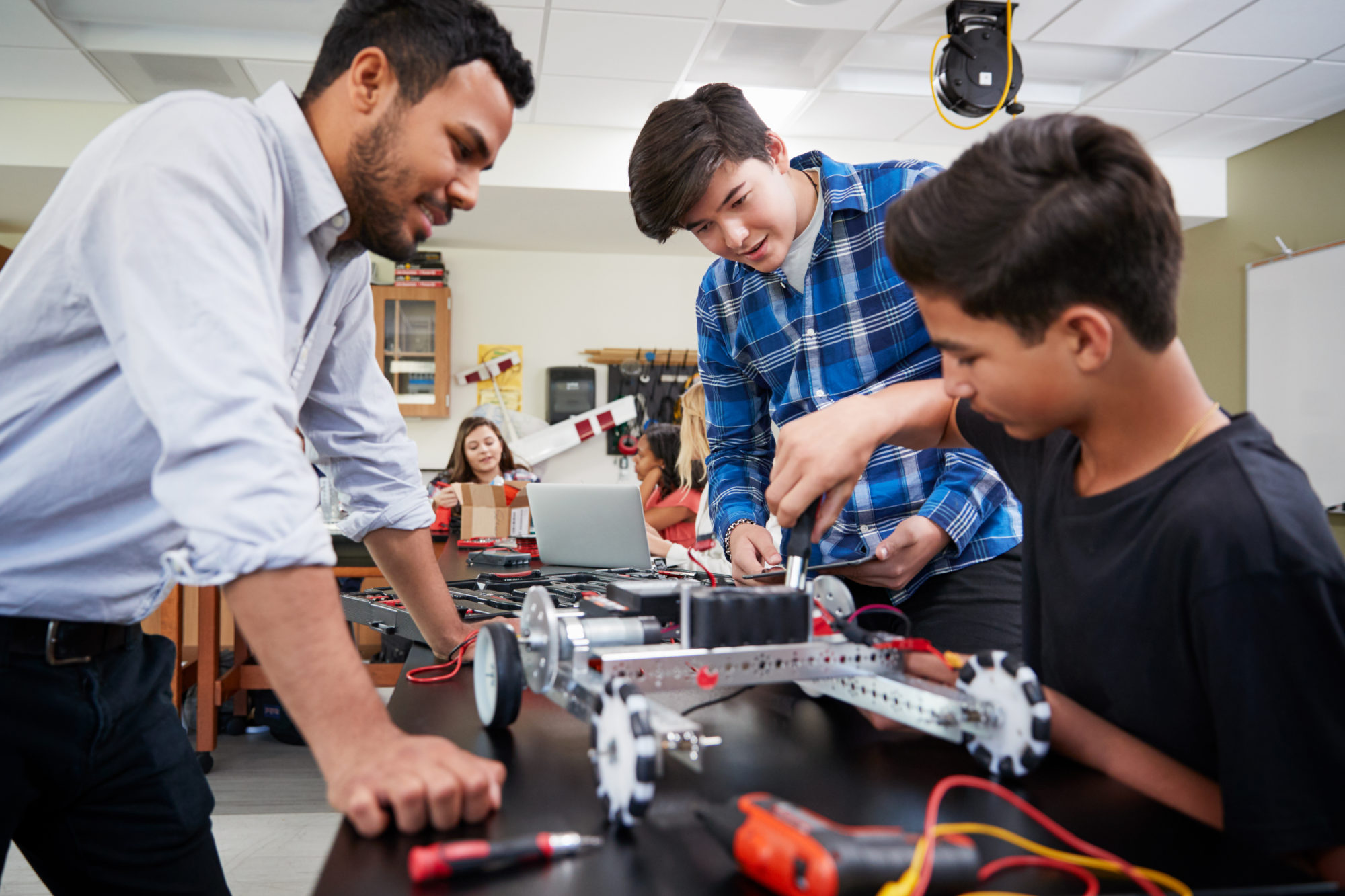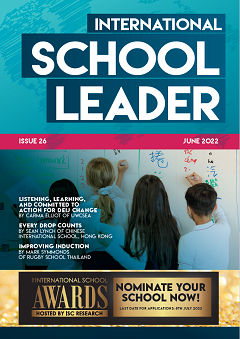By Reina Tayyibji
What pathway support do international school students find most valuable? In this first of two features from grade 12 students at Riverside School in India, Reina Tayyibji shares the results of research she conducted with her peers about this question.
Writing this as I approach the second term of 12th grade, it often seems that, in our classroom looms the pressure of unmade future choices, that our corridors are swarming with the overwhelm of decisions, and the pile of books on our desks cackle mockingly at the reminder of undone schoolwork. Still, it is not without a lingering feeling of excitement for the possibilities that our futures hold. Often, it seems, we get carried away with the importance we give to college and career decisions, yet often, we are lagging far behind.
To strike a balance between these two, each of us students find guidance in different sources. In conversations with a number of 11th and 12th grade students, I attempted to understand the common sources of guidance that assist students with the process of finding and implementing their passion, and that can be applied to common school and classroom settings. As a result, I found that although the processes and experiences that each student aligns to are very different, the experiences that we consider most helpful can be identified by three categories:
- Processes that inspire interest
- Those that provide depth and application of the interest
- Those that assist future prospects
Inspiring interest
If most students are able to recognise their broad inclinations and interests, then we often have difficulty in articulating them into vocational interests, or narrowing down within them. In most of my conversations, students recollected a group of classroom processes that helped them, if not to recognise, then to deepen their interest in their chosen fields.
One of these processes, for example, is one we conduct annually in our school – The Learning Hub. It is an inter-class team project wherein each team receives a topic under each of the fixed categories or domains. Depending on the domain, the topics could range from a toothpaste brand to a complex concept in nuclear physics – with the aim being to relate the seemingly unrelated ideas with an ‘in-depth connection’.
With a week given for research, brainstorming and preparation, a presentation must be made by each group, which could be in the form of a game, a play, a product or even a cooking demonstration, anything as long as it is not a PowerPoint. Although the purpose of this process is to promote in-depth research and critical thinking, many students recognised that this process allows them to find their inclination or even to spark interest in new topics. The range of explored topics and fields (which are often not covered by our syllabus), the interdisciplinary form of study and the various hands-on experiences it has scope for, naturally allows each student to identify with and contribute on the basis of their interests and skill sets.
Similarly, multiple students mentioned that their interest arose from structured, cross-domain discussions in classrooms that contain a scope for exploration and research. This gave them exposure to new topics and freedom to go beyond syllabus content or school subjects. Many also mentioned that hands-on learning experiences, such as experiments in science classes, first sparked their interests in their chosen domains, allowing them freedom for exploration in a learning context. Although different students related themselves to different processes, a clear pattern showed that most students found their field of interest in structured experiences that, by design, allowed them to explore a range of interests as well as skill sets.
Providing depth and application
Often, although we learn concepts in depth in a classroom, there always seems to be an uncertainty of their execution in a real-life scenario, or a feeling of anxiety that the classroom environment does not encapsulate the professional application of the same topic.
Many of the students claimed that classroom set-ups that allow them to explore the practical applications of their field of interest (for example, projects related to experiment and product design, or creating and implementing a business model) were highly useful in deepening their understanding of it, and in narrowing their preferences and interests within the field as well.
A process that was specifically recognised by many of us was the ‘Mastery’ or ‘Personal Project’. This is a long-term project that requires each individual to choose a topic of study (typically phrasing it in the form of a question). Using research and guidance from a professional expert in the field, students attempt to answer their question, producing a research paper and a presentation for a jury at the end of it.
This provides for a rich experience that not only allows students to receive a deep understanding of their chosen subject, but also allows for interaction with experts, application and experience in a professional set-up, as well as an opportunity to gain skills pertaining to research, writing, presentation and specific skills within their field. Multiple students have even acknowledged the importance of this process in highlighting that their chosen topic may not be their vocational interest, and have discovered new fields of interest.
Assisting future prospects
Once individual passions and vocational prospects are discovered, there still remains a sense of confusion for the future possibilities in the field.
In conversations, many of the students seemed confident in their choice of interest, yet were anxious about the steps they must take to move forward. However, some were more confident, and accredited it to being part of discussions with our school alumni, who shared their journey of going into different fields of studies and various careers. Having been part of the same school and a similar process of discovering and following their passion, they were able to give insightful suggestions on managing schoolwork, applying to colleges and considering future prospects in different domains.
Another common process conducted by our school that students recognised as helpful, was interactions and masterclasses with experts of different fields. This allowed many students to get an insight into the professional prospects of their interests, and assisted them with narrowing down on specific domains of interest.
From my conversations with my classmates and juniors, it was intriguing to see how, although we experienced these classroom processes together, they seemed to affect each one of us very differently. And despite finding guidance in different sources, within a variety of these experiences and opportunities, each one of us could find something worth pursuing.
 Reina Tayyibji is in Grade 12 and in her 12th year at Riverside School, India. She hopes to study Liberal Arts and is especially interested in English Literature as well as Art and Design.
Reina Tayyibji is in Grade 12 and in her 12th year at Riverside School, India. She hopes to study Liberal Arts and is especially interested in English Literature as well as Art and Design.
Subscribe to International School Leader Magazine for more!


